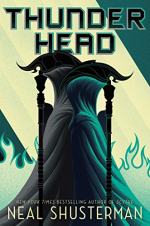
|
1. Scythe Brahms observes that “five highly developed senses could often have the semblance of a sixth” (6). To what sixth sense does Brahms refer? What purpose might its denial serve for the genre?
Brahms refers to what is often called extra-sensory perception. Denying it moves the novel away from fantasy, with which science fiction is often paired; excluding extra-sensory materials serves as an attempt to reinforce the novel’s verisimilitude.
2. Scythe Brahms observes that “no one should see a scythe so indisposed and live” when a couple sees him bestrewn with rotting food and helps him; instead, he gives them immunity from execution and sends them on their way (11-12). How does the passage serve to reinforce his personal authority?
The passage serves to reinforce Brahms’s personal authority in turning away possible questions. Asking questions is an assertion of agency; denying the questions is a denial of that agency, and one who can deny agency has authority. Similarly, being seen “indisposed” reveals weakness, which undermines authority; calling attention away from that helps to avoid it.
(read all 60 Short Essay Questions and Answers)
|
This section contains 3,646 words (approx. 13 pages at 300 words per page) |

|




